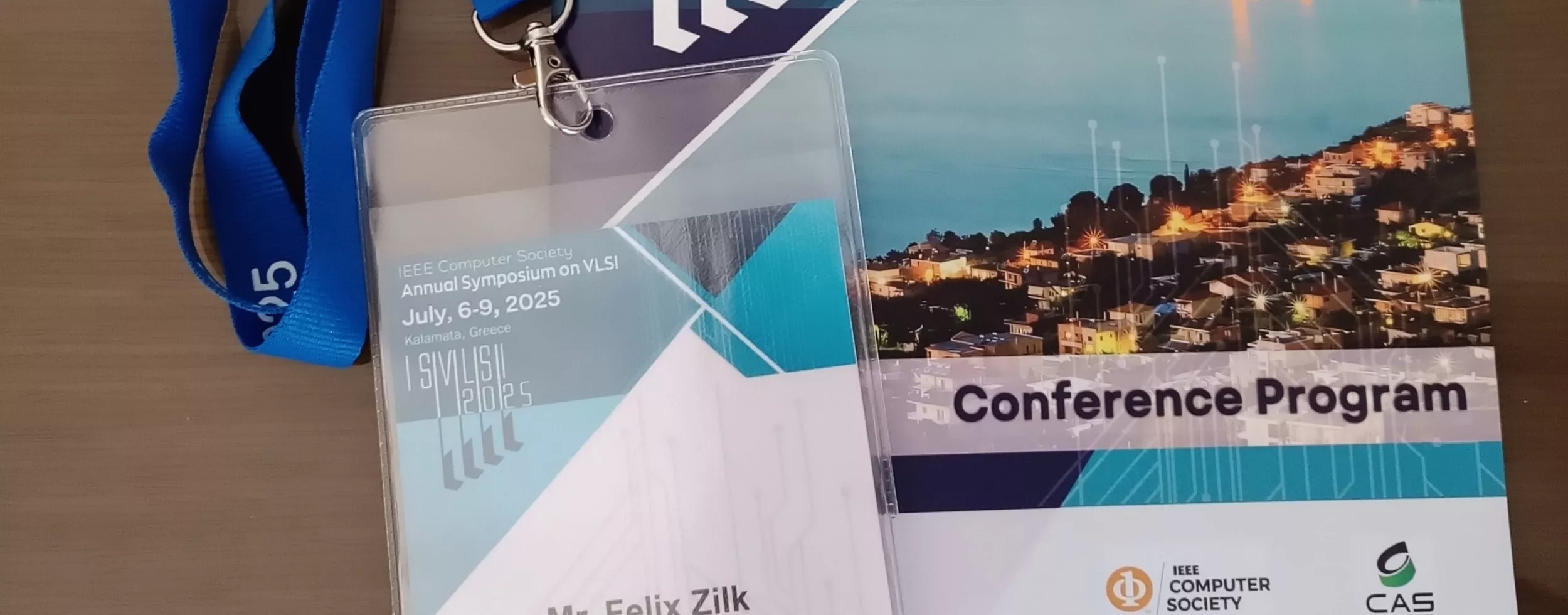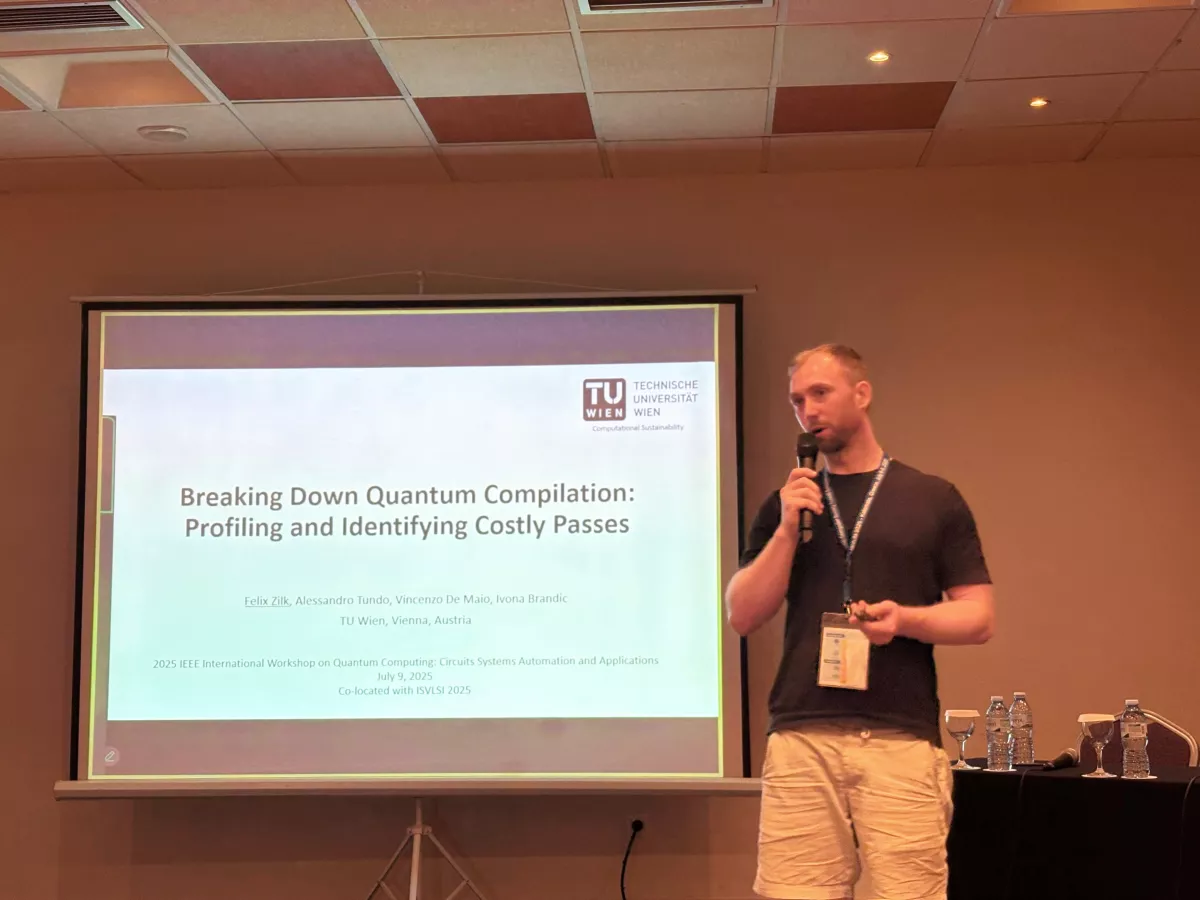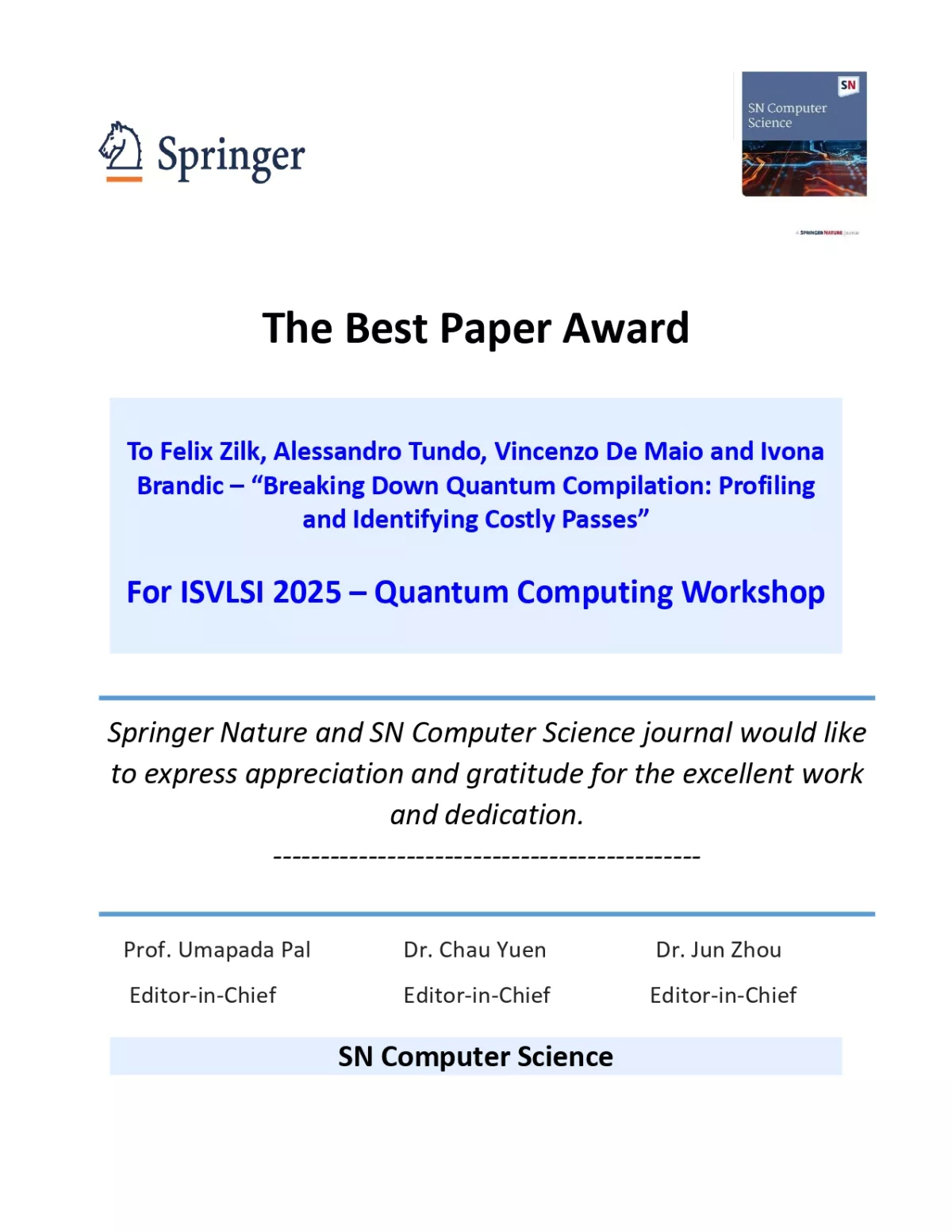
Förderjahr 2024 / Stipendium Call #19 / ProjektID: 7413 / Projekt: Optimizing Hybrid Workflows for Cloud-Based Quantum Computation
As we announced in the previous blog post, our paper on profiling the Qiskit compiler pipeline has been accepted for presentation at the International Workshop on Quantum Computing: Circuits Systems Automation and Applications (QC-CSAA) held in conjunction with the IEEE Computer Society's Annual Symposium on Very Large Scale Integration Systems (VLSI) in Kalamata, Greece, from 6 to 9 July 2025.

The ISVLSI symposium is a long-standing conference that has promoted multidisciplinary research and pioneering approaches in the field of VLSI for over three decades, bringing together leading scientists and researchers from academia and industry. This year's edition covered topics ranging from circuits and systems to design methods, as well as the current challenges of system-level design and the applications of VLSI to emerging technologies.
Our contribution focused on a crucial component of the quantum computing stack: the compiler. In quantum computing systems, hardware parameters drift over time due to their sensitivity to environmental noise, i.e., the hardware undergoes small physical changes, requiring frequent recalibrations to adjust the experimental control apparatus accordingly. This, in turn, renders precompiled programs for a specific quantum processor obsolete, requiring their recompilation from scratch after a hardware calibration procedure.
Therefore, in current execution workflows, quantum programs are compiled at runtime so that the latest calibration data can be included in the compilation process. However, this approach can lead to significant compilation-induced runtime overhead, especially for large workloads. Our contribution aimed to understand the impact of this overhead on state-of-the-art workloads involving hundreds of qubits, further breaking down the overhead into its individual pass executions, i.e., the individual steps carrying out the compilation process.
In our preliminary experiments, we profiled the Qiskit v1.3.2 compiler pipeline and measured the wall-clock time of each compilation pass. We further compared the overall time required for compilation with the time required to execute the compiled program on an ibm_brisbane quantum processor.
We are grateful for the constructive feedback and recognition we received at ISVLSI 2025, and we are particularly happy to receive the Best Paper Award at the workshop!

This motivates us to continue our work and take on board the valuable feedback as we move ahead. Stay tuned for more updates soon!
Read more: https://informatics.tuwien.ac.at/news/2948




